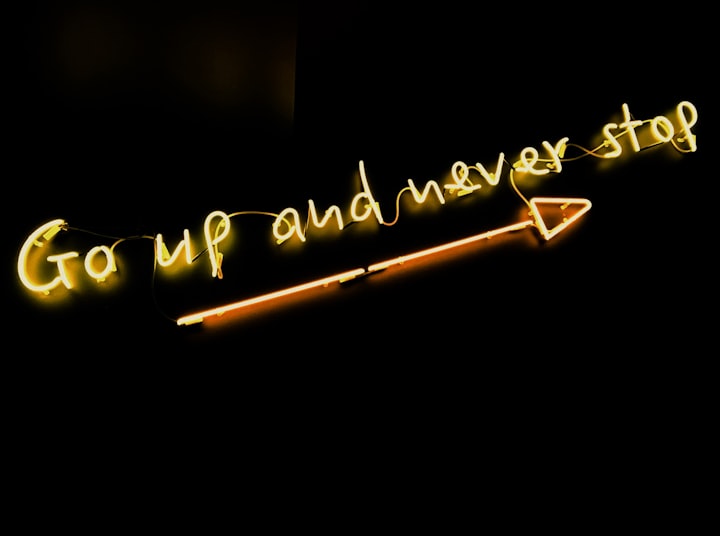You will never be good enough.
This notion isn't as destructive as you think...
I am a critical thinker. I am hard on myself. I have controlling thoughts. And all three of these mental operating systems love the concept of ‘good enough’.
I know I’m not alone in operating this way. Yet, the beauty (and irony) of such bold statements is that “I am [my thoughts]” is the greatest misconception we face. Unfortunately, knowing it’s a misconception and being able to dis-identify from our thoughts are two different events and a constant work-in-progress.
Yet, this article is not about dis-identifying from your “I am” thoughts (if it was, I would be a fraud, as I have yet to succeed in this area myself). This article is about the trap of the notion “good enough” and how it can be permission instead of a barrier.
When the words ‘good enough’ come to mind, its normal led with “am I” and finished with an “?”. It is triggered by many areas of life: professional, social, personal. The list goes on… The problem is we ask this question silently to ourselves and expect someone else to answer.
Whether it’s a “I’m proud of you” from our parents, a “you look sexy in that outfit” from our partners or even a “good job” from our boss, we are waiting for these positive comments to answer the question “am I good enough?”. Unfortunately, these comments are rarely daily events. We often ask this critical question of our worthiness to the world, and the world doesn’t reply. If no one else suggests we’re “good enough” then that must mean we’re not, right?
Not necessarily…
While we’re waiting for a response from the external world, we contemplate the answer to the question for ourselves. It’s a trap. For as long as we have goals and ambitions beyond where we currently are, we can find a reason to believe we’re not good enough ‘yet’. There’s a dream for our ‘ideal self’ that is healthier, happier and more fulfilled. If that’s the image of ‘good enough’ and we’re not there yet, then we must not be ‘good enough’!
The problem is we are trying to measure something without a ruler. We’re trying to measure our worthiness based on our own opinions and desires, on whether we think the external world considers us ‘good enough’ or whether we feel ‘good enough’. In all of these scenarios, there is a ruler or opinion that will suggest ‘no’ and just as many that will suggest ‘yes’. So, why do we continue to ask a question that makes us feel depressed instead of empowered?
Seriously... These puppies want to know!
Questioning our own worthiness may be the oldest question of all time (since consciousness developed at least) despite the innate truth: we are all worthy of life. But trying to stop asking the question is an unattainable ideal. Thoughts come and go, and there will always be times when we don’t feel ‘good enough’ and therefore question our worthiness. It is the nature of the world for these moments to come. But the notion doesn’t have to be a destructive question if the beliefs that underpin the notion ‘good enough’ are empowering.
Right now, you might be scratching your head trying to fathom how we can turn the question “am I good enough?” into an empowering thought.
The answer is Lisa Bilyeu’s recent Instagram post:
The truth is, there will always be an opinion out there that says: no, you’re not good enough. As humans we find it much easier to remember this disheartening aspect over of the empowering one that there is an opinion out there that says: yes, you are good enough! But if we stop valuing the idea of being ‘good enough’ then the question has less power over us. If we are never ‘good enough’ then why are we waiting to be ‘good enough’ to feel good about ourselves, to wear that dress or to apply for that new job?
If we’re never ‘good enough’, then we don’t have tie ourselves to the notion until it drags us down to the bottom of the ocean. Instead, we can swim free and just do, be and exist.
The idea “you will never be good enough” can become your permission. If you have the answer to the question then the question isn’t as important any more, you don’t have to contemplate the answer for as long – why should you wonder about the answer when you have it. And once the contemplation ends, the only thing left to do is take action.
So, let’s take Lisa’s advice. If none of us can ever be ‘good enough’, let’s spend less time wondering and just “do it anyway”.
About the Creator
Ashley Beeby
Writing as a women and an academic in trade and as a creative in life.
Qualified Heavy Vehicle Diesel Mechanic // Sci-fi & Fantasy Writer // Poet
Check out my website ashleybeeby.com or follow me on instagram.







Comments
There are no comments for this story
Be the first to respond and start the conversation.